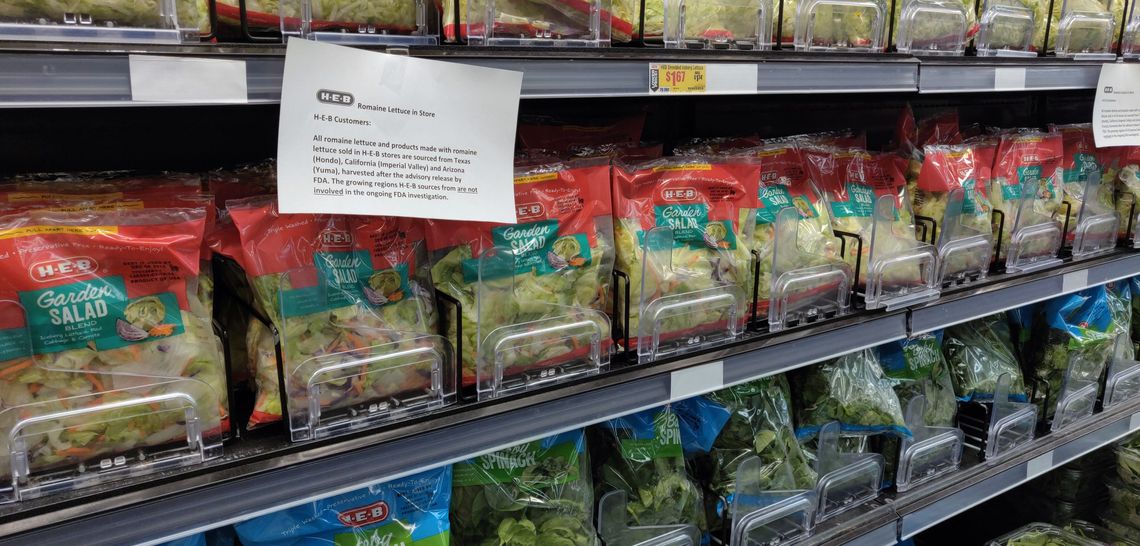Center for Disease Control warns of E. coli outbreak in romaine lettuce
A recent outbreak of E. coli in romaine lettuce harvested from farms in California prompted numerous grocery stores and restaurants last week to clear their shelves of the leafy greens.
The move came after the Centers for Disease Control and Prevention announced the discovery of the E. coli virus in lettuce prior to the start of the Thanksgiving holiday.
In Hays County, grocery stores such as Brookshire Brothers and H-E-B are sporting empty shelves after discarding the potentially contaminated food products.
“H-E-B has withdrawn all romaine lettuce products from store shelves out of an abundance of caution, and the product will not scan at the check stand,” said Leslie Sweet, director of public affairs for H-E-B’s Austin/Central Texas division. “H-E-B’s top priority is food safety and we will restock the products when it’s safe for consumption.”
According to the CDC, the E. coli infection may cause a type of kidney failure. Although no deaths have been recorded as of press time, 43 people from 12 states have been infected with the strain of E. coli
E. coli is spread by the contamination of water that used to grow or wash fruits and vegetables. Often a result of fecal matter mixing with water, the infection can spread if a product is not washed thoroughly.
It is unknown when the outbreak will be contained. The CDC is urging residents and businesses to be wary of romaine lettuce until further notice.
Grocery stores such as H-E-B purchase romaine from farmers across California, Texas and Arizona.
According to a statement by H-E-B, all romaine products sold at the grocery store are sourced from Hondo, Texas, Imperial Valley, California and Yuma, Arizona.
“The growing regions H-E-B sources from are not involved in the ongoing FDA investigation,” a statement from the grocery store read.
The Politics of Lettuce
Recent reports from national media outlets indicated that the Food and Drug Administration (FDA) might be connected to the outbreak.
According to an initial report by Wired, six months before the outbreak, the FDA, responding from pressures of the farm industry and President Donald Trump’s order to eliminate regulations, shelved water-testing measures that could have prevented the bacteria.
But the bacteria is not a new phenomenon in the U.S. In 2011, a major E. coli outbreak caused more than 200 illnesses across 36 states, as well as 27 kidney failures and five deaths in the U.S.
As a result, in 2011, Congress mandated a fix, calling for growers to begin routine testing of water. However, Trump’s efforts to halt water testing regulations slowed any progress to help alleviate the spread of dangerous bacteria.
Despite the outbreak only occurring in specific regions of the country, romaine farmers are taking a financial hit, as buyers, as recommended by the CDC, are not purchasing that type of lettuce.
In order to protect oneself from the bacteria, the CDC recommends the halt of all consumption of romaine lettuce, even if the product was harvested in an uninfected region, such as Texas.











